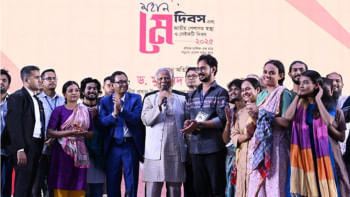Prospects of the Millennium Campus Network for Bangladeshi fellows

Established in 2008, the Millennium Campus Network (MCN) is a non-profit organisation that trains 21st century social impact leaders. Bangladesh has been selected for the 1st time in the MCN this year. In 2018, the organisation expanded the fellowship programme by partnering with United Nations Academic Impact to assemble, contest, and revel undergraduate leadership for SDG and UNAI principles. Out of all the applicants, only six percent of them are chosen on the basis of the ideas that can prove to be progressive for a nation. 17 fellows from AUW, 13 fellows from BRACU, 14 fellows from BUP and 11 fellows from CU were selected from Bangladesh.
Projects from the fellows include Scarred, a platform designed to address PTSD patients, focused on making lives better for rape, harassment, molestation and domestic violence survivors, with self-help guidance. On the other hand, O-Zone is a movement that aims to create a zone full of oxygen in this world by keeping urbanisation and industrialisation in function. In 2019, it became a regional champion in NASA Space Apps Challenge, and also received global nominations.
In 2020, the movement was regional runner-up in the same competition with the global nominations. It also won National ICT Award 2020 in the student's category. The project, Socialize Transgenders, is working with a government-registered volunteer organization "Better Future Bangladesh". In our civil society, transgender people are widely deprived of continuing mainstream livelihoods.
The project targets to celebrate festivals with them, and find favourable workplaces for them. The Millennium Fellowship period intends to make life better for about 100-150 transgender people. On the other hand, KriShop is an urban-centric traceable food supply chain that gives direct access to fresh veggies and fruits of the locality and pioneers urban farms and agro-entrepreneurs.
KriShop aims to convert every city into urban farms and create a direct bridge between the consumers and growers via their online platform. They are pioneering new urban agro-entrepreneurs to create a new sustainable agro-ecosystem. The Bangladeshi fellows are working towards other goals too, for instance, reducing hunger and poverty, increasing awareness towards climate change, gender equality and education among others.
Millennium Fellowship campuses will hold a minimum of 6 training sessions facilitated by the Campus Directors, who receive prior training from the MCN directly). The training sessions are usually held on campus but due to the pandemic, most of the campuses are doing this virtually.
The sessions are designed and structured by the global experts to prepare the fellows to take action, build socially impactful careers and at the same time promote the SDGs globally. The Whole Program is campus oriented and curated by the directors. Although for the very first time they are planning to take it beyond the boundaries of the campuses and arrange some collaborative sessions with varsities around the world.
The networking aspect of the MCN can be said to have provided the fellows with ample opportunities globally.
The author is a freelance journalist.

 For all latest news, follow The Daily Star's Google News channel.
For all latest news, follow The Daily Star's Google News channel. 



Comments